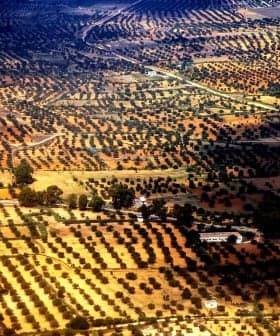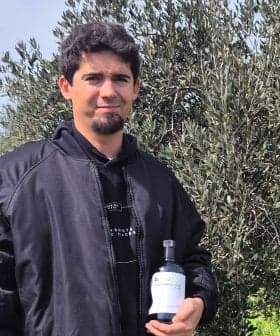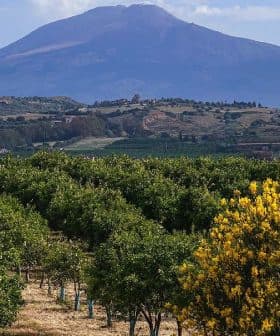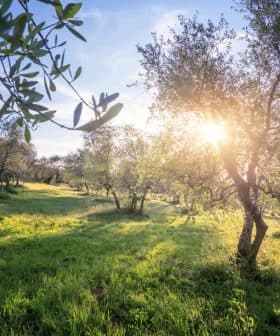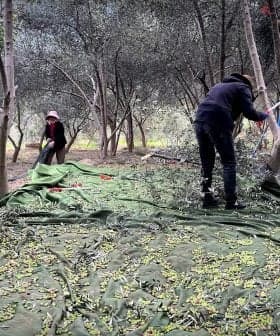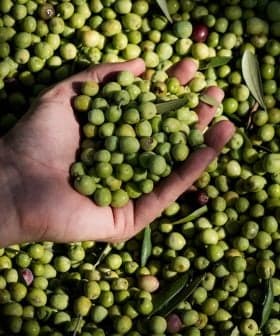Italian Olive Farmers Have Until End of March to Claim New Funds
Italian olive farmers have until the end of March to request funds from a €30 million fund for recovery and innovation in existing and new groves. The Agency for Payments to Agriculture will allocate up to €25,000 over three years per project, with a focus on modernizing existing groves and planting new ones to increase olive yields in Italy.
Italian olive farmers have until the end of March to ask for their share of a €30 million fund earmarked for recovery and innovation in existing groves and to establish new ones throughout the country.
The Agency for Payments to Agriculture (Agea) will allocate a maximum of €25,000 over three years to each project, covering up to 70 percent of each project’s total costs. For each hectare involved in the projects, the payment will be between €8,000 and €17,000. All financed projects will have to include at least two hectares.
We need to prepare a lasting strategic plan for the relaunch of Italian olive growing, and the €30 million call for the modernization of the groves is the first step.
Of those funds, €20 million will be dedicated to modernizing existing olive groves, with the other €10 million aimed at planting new groves. The goal of the new funds is to bolster olive yields in Italy, which have been significantly dropping in recent years.
Italian olive oil production for the current season is expected to reach 315,000 tons, significantly more than the 255,000 tons produced in 2020/21.
See Also:Production Costs Set for Steep Rise in ItalyHowever, production has trended downward over the past decade, with average production in the last five years reaching 281,000 tons, compared to the 502,000-ton average recorded between the 2010/11 and 2012/13 crop years.
To access the fund, olive farmers will have to join an official producer organization and adopt precision farming techniques, including the installation of sensors in their groves. Additionally, the new tree planting funded by the Agea will be limited to local varieties.
All requests will be examined by Agea beginning in April. Requests for funds to help recover larger areas will be given special priority.
The agency will also prioritize higher density groves, preferring groves planted with 389 trees per hectare instead of the traditional 250 per hectare. The availability of irrigation for the new plants will also be considered a key factor for approval by the public agency.
The new funds come on top of the €300 million dedicated last year to the recovery of olive farmers impacted by Xyella fastidiosa in Puglia.
The funds will also add to the recent introduction of the revolving pledge, a financial tool that may help olive oil producers to innovate and become more competitive in the market.
The pledge is only dedicated to those producers whose extra virgin olive oil is certified with Protected Designation of Origin (PDO) or Protected Geographical Indication (PGI) status.
With the new tool, more than 9,000 Italian producers will be able to sign new contracts with local banks to have immediate access to liquidity in exchange for recently-produced or stored olive oil.
The pledges may be renewed each year by substituting the older production with the latest production, allowing producers not to sell their olive oil at discounted prices and wait for the best offers.
Italian producers believe that the new tool can significantly impact the sector.
“The revolving pledge is already operational, and we believe it is a tool that expresses wealth,” David Granieri, president of the olive oil producers’ association, Unaprol, told Olive Oil Times.
“The fact that the oil can be given as a pledge to modulate a financial receipt is a novelty for our industry. It means giving value to the product and wealth to the territory.
“The impact could be decisive because, thanks to the pledge, we can concentrate the current season’s product and avoid speculation,” he added. “The producers’ reactions can only be positive because the new tool could significantly reduce the commercial difficulties and allow those who produce quality to enhance their work.”
The revolving pledge has been previously made available to the wine sector.
According to Giuseppe L’Abbate, member of the agricultural committee at the House of Representatives and former undersecretary to agriculture, “the extension [of the revolving pledge] to the olive oil sector is very recent, and we are waiting to measure its effects from the first operations that have just begun.”
“In just a few months, such tool had a very relevant impact on the wine sector, where it slightly exceeded €60 million even if producers already had access to many other financial tools activated during the Covid-19 pandemic,” L’Abbate told Olive Oil Times.
According to Granieri, “we are on the right track. We need to prepare a lasting strategic plan for the relaunch of Italian olive growing, and the €30 million call for the modernization of the groves is the first step.”
“Other initiatives must necessarily follow to make up for the lost time and relaunch as it deserves the production of quality Italian extra virgin olive oil,” he concluded.



